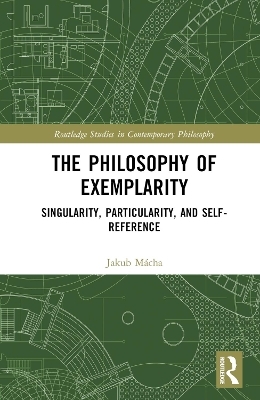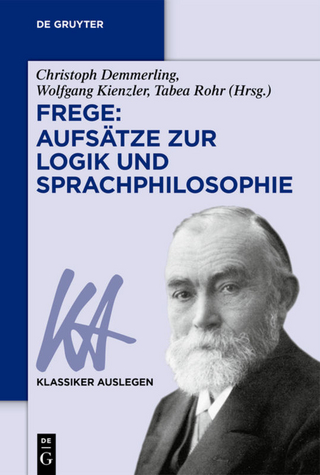
The Philosophy of Exemplarity
Routledge (Verlag)
978-1-032-28966-3 (ISBN)
There is a broad consensus that exemplary cases mediate between singular instances and universal concepts or norms. In the first part of the book, Mácha contends that there is a kind of différance between singular examples and general exemplars or paradigms. Every example is, in part, also an exemplar, and vice versa. Furthermore, he develops a paracomplete approach to the logic of exemplarity, which allows us to say of an exemplar of X neither that it is an X nor that it is not an X. This paradox is structurally isomorphic to Russell’s paradox and can be addressed in similar ways. In the second part of the book, Mácha presents four historical studies that exemplify the ideas developed in the first part. This part begins with Plato’s Forms, understood as standards/paradigms, before considering Kant’s theory of reflective judgment as a general epistemological account of exemplarity. This is then followed by analyses of Hegel’s conceptual moment of particularity and Kuhn’s concept of paradigm. The book concludes by discussing the speculative hypothesis that all our knowledge is based on paradigms, which, following the logic of exemplarity, are neither true nor false.
The Philosophy of Exemplarity will be of interest to scholars and advanced students working in philosophy of language, logic, history of philosophy, and literary theory.
Jakub Mácha is Professor at the Department of Philosophy, Masaryk University (Czech Republic). He has published on philosophy of language and classical German philosophy. His most recent book is Wittgenstein on Internal and External Relations: Tracing All the Connections (2015).
Part 1 Preface and Introduction
1.1 Methodology: Singularity, Particularity, Self-Reference
1.2 Terminology of Exemplarity: Example, Exemplar, Paradigm
Part 2 The Life Cycle of a Paradigm
2.1 Singularity: Introducing a Paradigm
2.2 Particularity and Universality: How Paradigms Are Applied
2.3 Self-Reference: The Logic of Exemplarity and the Paradigm Paradox
Part 3 Examples of Exemplarity
3.1 Plato: Forms as Standards
3.2 Kant: Reflective Judgment
3.3 Hegel: Particularity as Exemplarity
3.4 Kuhn’s Paradigms
Part 4 Conclusion: Exemplarity as an Example-Exemplar
| Erscheinungsdatum | 13.10.2022 |
|---|---|
| Reihe/Serie | Routledge Studies in Contemporary Philosophy |
| Verlagsort | London |
| Sprache | englisch |
| Maße | 152 x 229 mm |
| Gewicht | 471 g |
| Themenwelt | Geisteswissenschaften ► Geschichte |
| Geisteswissenschaften ► Philosophie ► Logik | |
| Geisteswissenschaften ► Philosophie ► Philosophie Altertum / Antike | |
| Geisteswissenschaften ► Philosophie ► Philosophie der Neuzeit | |
| Geisteswissenschaften ► Philosophie ► Sprachphilosophie | |
| ISBN-10 | 1-032-28966-X / 103228966X |
| ISBN-13 | 978-1-032-28966-3 / 9781032289663 |
| Zustand | Neuware |
| Informationen gemäß Produktsicherheitsverordnung (GPSR) | |
| Haben Sie eine Frage zum Produkt? |
aus dem Bereich


